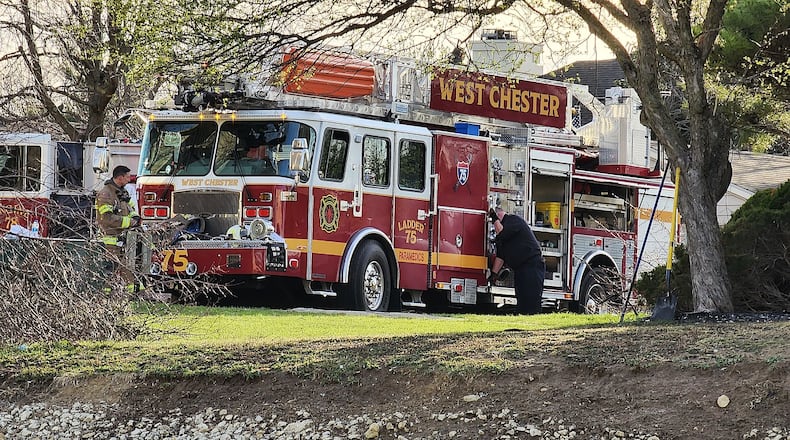The township sued the union in Judge Dan Haughey’s court in June asking him to confirm an arbitrator’s decision, declare the continuing grievances on this issue moot, dismiss them and prevent them from going to arbitration and that the township has no obligation to bargain the matter with the union.
The union’s attorney Bennett Allen asked Haughey to dismiss the case last week saying the township “has failed to state a claim upon which relief can be granted.”
Overtime cost for fire lieutenants were skyrocketing over the past several years, so township officials decided to create the role of “traveling lieutenant” to fill in as needed. Annual overtime cost savings was estimated at $230,000, according to the lawsuit filed in Butler County Common Pleas Court in June. The idea was to hire/promote three people to fill in when “vacancies existed due to vacation, sick leave, medical leave or other absence.”
The union filed two grievances over the issue.
“From the union’s perspective the main objection is that the parties have a contract that governs how overtime is to be apportioned under certain circumstances, how it is to be distributed,” the union’s attorney Bennett Allen told the Journal-News previously. “The township’s plan for using these traveling lieutenants ... it’s our position it violates the parties contract.”
The township denied the grievances and it went to arbitration, and the township won. The arbitrator ruled “the board has the authority to determine the size and composition of the workforce.”
The union also filed an unfair labor practices charge with the State Employment Relations Board claiming “the township unilaterally changed the terms and conditions of employment” by utilizing the traveling lieutenants. SERB dismissed the complaint stating “the charge is dismissed with prejudice for lack of probable cause to believe the statute has been violated.”
The union asked for reconsideration and SERB denied the request. The lawsuit claims the union has filed grievances — a total of 103 since January — every time a traveling lieutenant was deployed and demanded that each one go to arbitration. The township has rendered them all “moot” because of the arbitrator’s decision.
The arbitrators decision was rendered before the fire union started filing all the subsequent grievances so in the dismissal request Allen said those can’t be resolved without further arbitration.
“Plaintiff has not petitioned this court to confirm an arbitration award. Plaintiff has asked the court to adopt its interpretation of an arbitrator’s legal and factual conclusions, and to adopt plaintiff’s position regarding the implications thereof,” Allen wrote.
“Even if the complaint’s allegations are taken as true and all reasonable inferences are made in plaintiff’s favor, nothing changes the fact that the arbitrator’s award does not provide the relief plaintiff seeks: the award provides no relief from subsequent related grievances. Whether the arbitrator’s final and binding award foreclosed subsequent related grievances should be decided by way of arbitration.”
Allen told the Journal-News previously the township had “a duty to bargain over the effect of that decision, how the decision effected the collective bargaining agreement.”
Barb Wilson, director of public information and engagement for the township said they can’t discuss the litigation and the motion to dismiss is “typical” in the course of a lawsuit.
“Our organization values all of the dedicated servant leaders who provide exceptional service to the residents of the community. At the same time, our organization is obligated and committed to being responsible stewards of taxpayer dollars,” Wilson said. “The ability to balance these two responsibilities can be challenging at times and can sometimes require legal action be taken to address disagreements.”
About the Author

